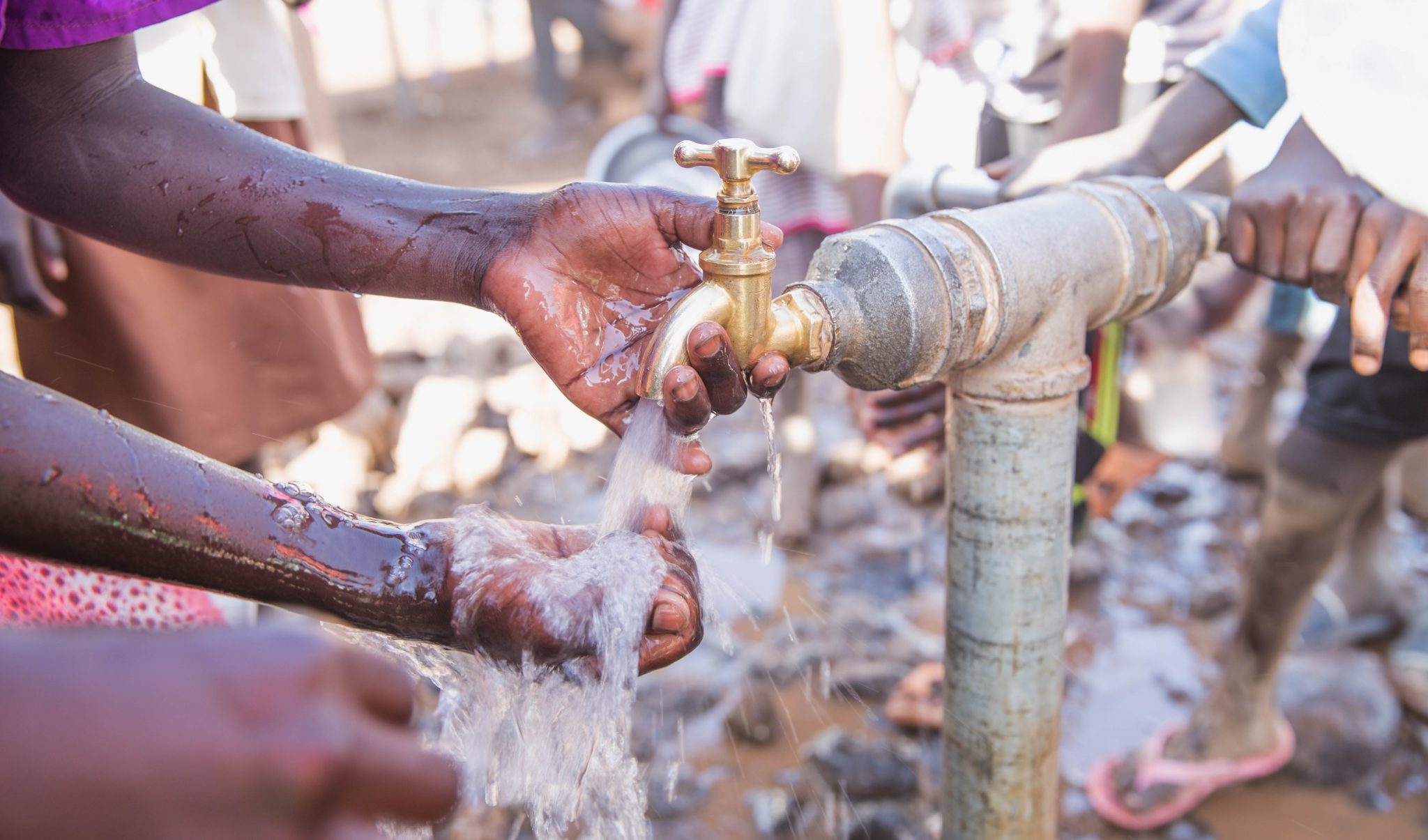Soap and social distancing are a luxury that refugees cannot afford, even when facing the coronavirus
Hand washing and social distancing are key to prevent the coronavirus from spreading.
Imagine yourself living in a tight, designated space where you have to share one latrine together with tens or even hundreds of people. You also have to queue for water and food supplies.
You live with tens of thousands of people without a chance to avoid daily human contact and receive information that a highly contagious disease is spreading from human to human. You learn that this disease could require intensive care to save your life but you know that you and your family have practically no way of accessing any of the hospitals that can provide this care for you.
It is hard to even picture this scenario if you are not living as a refugee in one of the world’s crowded refugee camps or belong to the poorest section of a developing country’s population.
Currently, over 70 million people around the world have been forced to leave their homes because of conflicts, prolonged crises and disasters – 29 million of them live as refugees.
Most of these refugees – 84 per cent – live in low- or middle-income countries, like Uganda, Somalia, Kenya and Jordan where Finn Church Aid operates.
The World Health Organisation WHO declared the coronavirus epidemic a pandemic on March 11th. It means that the spread of the coronavirus from one country to another can no longer be stopped. Officials can only slow down the pandemic to avoid worst-case victim estimates.
Inequality shows even in hand hygiene
An essential part of slowing down the pandemic is maintaining sufficient hand hygiene and avoiding human contact. An unfortunate fact is that people do not have the same possibilities to even wash their hands with soap. This is a challenge for people already in a vulnerable position.
In places like refugee camps or slum areas, human contact is also hard if not impossible to avoid because they are densely populated areas. For instance, the world’s largest refugee camp Cox’s Bazar hosts 850,000 people on an area roughly the size of Chicago’s O’Hare International Airport.
By mid-March, Bangladesh had three coronavirus cases, but the number could be higher.
In refugee camps, latrines are often shared by a large number of people. Hygiene standards are poor already without an epidemic like the coronavirus. The poorest areas in developing countries face the same challenge.
The people forced to live in refugee camps have already experienced hardship and prolonged crisis conditions that can weaken their immune system. Many suffer from long-term illnesses that make them vulnerable to infections, and they ultimately form a risk group for the coronavirus.
While populations in Africa are generally young, sub-Saharan Africa is home to 68 per cent of the world’s 38 million HIV positive people. The coronavirus is a more severe threat to their already weaker immunity than it is to others of their age.
People in refugee camps do not have access to healthcare that corresponds to their needs. They particularly lack the intensive care facilities required to save lives from respiratory infections that the coronavirus can cause.
The world’s poorest and most vulnerable countries often suffer from a lack of proper health and sanitation services as well as clean water. These resources are at least not accessible for refugees.
Refugees might also be left without information about how to prevent infections from spreading.

Hand washing prevents many kinds of infections but the possibility to wash hands with clean water and soap is not self-evident in the world’s poorest areas and refugee camps.
One can pass the disease to tens of others
The coronavirus is known to be highly contagious in social contacts, and also those without any symptoms can spread the virus in their surroundings. That is why social distancing – reducing the number of human contacts – is key to prevent the coronavirus from spreading.
Families are often big and family members stay close to each other in cramped spaces. One infected person could pass on the disease to the entire family – even three generations of it.
Small business owners are also highly vulnerable to the effects of the disease. People that depend on service- and retail-based livelihoods have to deal with other people. It exposes them to viral infections and they can also pass on the virus to a large number of people before any symptoms appear. When falling sick, they might lose the livelihood that supports their entire family.
The pandemic delays refugees’ access to safety
The pandemic creates an additional challenge for refugees: to stay where they are.
The UN’s refugee agency UNHCR is worried that the coronavirus pandemic can increase discrimination and racism towards refugees, even though the virus is more likely to spread with regular travellers from one part of the world to another.
There is still hope. In 2014-2015, West Africa suffered from the spread of the Ebola virus. It killed 11,000 people before the disease was contained. In addition to the death toll, Ebola caused severe economic losses to those already in a vulnerable position. But much worse could have happened.
Ebola spread mostly in fragile states like Liberia, Sierra Leone and Guinea. It also reached other countries but never spread widely on other continents.
The key to defeating the disease was that people received enough information and avoided contact with others.
Text: Elisa Rimaila
Translation: Erik Nyström
Picture: Carla Ladau